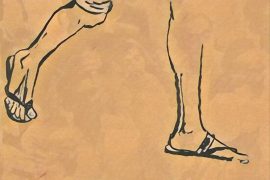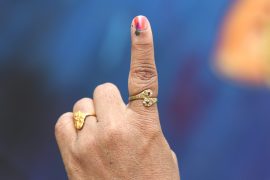It’s on record that once a lady, an avid reader of writer John Steinbeck’s books in particular, came to a bookshop by boat, rowing it herself from a considerable distance to buy one of his books with no money to offer but a couple of chickens. She didn’t have to go back empty-handed. When the bookshop owner narrated this incident to Steinbeck, a Nobel Laureate (1962), he said: “Rowing 16 miles to make a trade for one of your books? That’s what you write for. That’s as good a prize as you can get.”
In October last year, when the Nobel Prize in Literature was announced, Nobel Laureate Jon Fosse (2023)—whose writings, like Graham Greene’s, are chock-full of suicide cases—received acclaim from his legions of fans, among whom, a note from a certain Greek woman touched him profoundly. Shortly afterwards, Fosse, in an interview, said, “I had a very touching e-mail. It was from a Greek woman who told me that my play ‘Death Variations’ was the reason she was still alive, otherwise she would have parted. It was very touching to read … it’s a play about suicide, and she, of course, must have been very close to committing suicide.”
I remember occasions when, after reading a particular book for the first time, I grew so very fond of it that putting everything on the back burner for a while, I journeyed thousands of miles to knock on the door of its author just to express my indebtedness for the shift in my consciousness caused by the book. When I could not meet the author concerned for whatever reasons, I would write an article and send a copy of it to the author when it saw the light of day. That has been my way of paying homage to my favourite writers.
For example, when I finished reading the novel The Everest Hotel by award-winning author Allan Sealy at the bidding of travel writer Bill Aitken, I cheerfully took in my a stride two-night train journey to meet the writer, and then my adoration for him grew further. I found there’s a magic about him that became manifest whatever he did, more so when he spoke. On subsequent occasions, every time a new book of his appeared, I gladly took the trouble to visit his home at Dehradun, to be with him for an hour that invariably caused, for the time being, all my earthly troubles to fade away.
It was my habit to always reach the writer’s residence with a few minutes to spare. Sometimes, I got there a bit too early, the road being free from any traffic jam contrary to what I had expected, and therefore, I could not ring the bell until the appointed hour. So I waited outside sometimes in a café for close to an hour.
Once, when the novel The Brainfever Bird (2003) by Allan Sealy came out before the conversation could begin, he wrote in my copy: “Never, never stand sweating outside my gate if you’re early—come right in!” Three years later, I was at his retreat again, this time with a copy of his new novel RED (2006). We sat by the edge of his garden before dusk. I kept him engaged for almost two hours. When we wrapped up, it was quite dark, with mosquitos going on the rampage. He took me inside and wrote an inscription that sustained me when I took the gruelling journey back home: “Your attention to detail is always greatly valued: every writer dreams of such a reader.”
-30-
Copyright©Madras Courier, All Rights Reserved. You may share using our article tools. Please don't cut articles from madrascourier.com and redistribute by email, post to the web, mobile phone or social media.Please send in your feed back and comments to [email protected]











